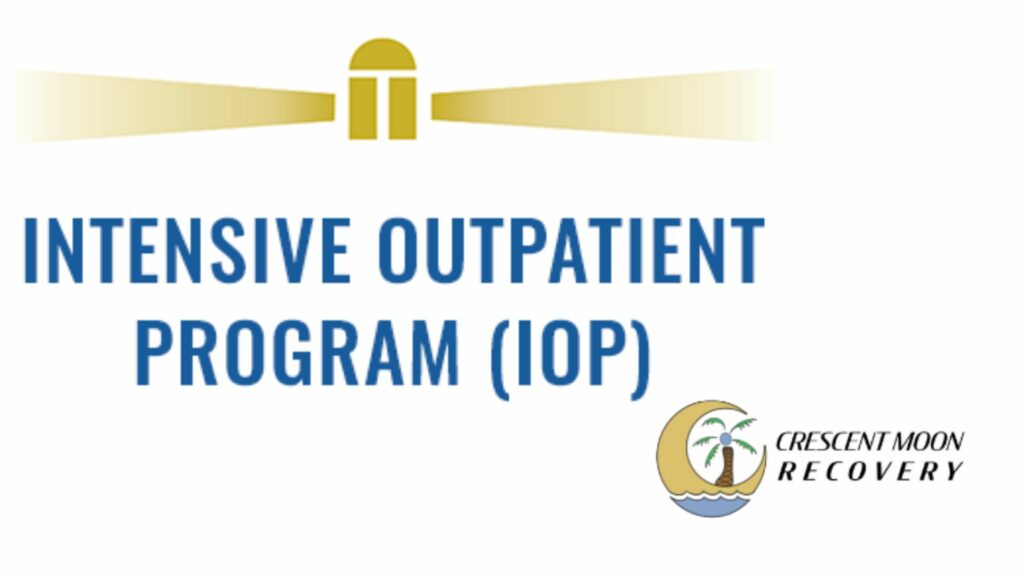
Sober living houses (SLH) originated in the state of California and their prevalence grew in the 1980s and 1990s due to the rise in homelessness at that time. The main purpose of sober living houses is to provide a safe and supportive environment for people in recovery. In sober living houses, residents pay monthly rent, participate in group meetings as well as house meetings, and actively work on their recovery during their stay. They may stay as long as they need to as long as they continue to work toward a healthy life and wellness in recovery.
Sober living houses are not licensed by the state or government. Residents pay for their stay themselves and benefit from a positive social environment while transitioning from a treatment facility to independent living. Sometimes, sober living houses are managed through recovery centers like Crescent Moon Recovery and residents are able to receive intensive outpatient treatment. Other times, participants will not be in treatment and will only attend group meetings during their stay.
Those who choose to reside in a sober living house have usually already completed inpatient treatment at a recovery center and may feel as if they may need more structure or support before returning home. Jumping out of inpatient treatment and back into the “real world” and environments in which an individual was previously using substances is often too big of a transition, as they are still sensitive around their addiction and drug or alcohol use at this time. Triggers and cravings are still likely to occur after inpatient treatment, and being a part of a supportive community, even if it’s just sober housemates, can be incredibly beneficial to long-term recovery.
Outpatient services like weekly individual therapy, activities at a recovery center, and group and family therapy can help with addressing the difficult thoughts, feelings, and new responsibilities that come with this transition. Every rehabilitation center, just like every addiction, is different. Typically, recovery centers are designed in such a way to provide those struggling with substance use disorders through every stage of recovery until they are ready to return home and move forward with the tools they’ve been provided to maintain sobriety and lasting recovery.
Outpatient services in sober living houses have proven to be a beneficial approach to addiction recovery. in a study published in the Journal of Psychoactive Drugs, researchers highlight the importance of sober living houses on social factors in recovery and how one’s living environment plays a significant role in their social network. Sober living houses cater to a person in recovery’s need for a strong social network by:

Lack of stable, supportive, drug- and alcohol-free living environments can seriously impact an individual’s ability to maintain sobriety and reach long-term recovery. Even if a person does have a living environment that is free of alcohol and drugs, the family or loved ones may not be able to consistently provide the stable support and encouragement they need at this time in their recovery. Living environments that are unhealthy or destructive can derail recovery, even for the most motivated individuals. Here are some reasons a sober living house may be a beneficial option in recovery.
Unlike halfway houses, sober living houses do not have a time limit on their residents’ stay. As long as residents pay fees and rent and abide by house rules, they are welcome to stay as long as they need. Many sober living houses also do not require residents to be active in a rehabilitation treatment program. They only require that residents play an active role in their recovery by attending 12-Step meetings or other support group meetings that promote sobriety and encourage a strong recovery.
Most sober living houses have drug and alcohol screenings to enforce sobriety. Like any home, sober living houses have house rules that must be abided by, such as:
Residents are responsible for their behaviors and accountable for their whereabouts when they are away from their sober living house. This kind of living arrangement is most suitable for people who are in recovery and are looking to learn more responsibility before setting out on their own. Most residents will attend work or school during their stay in sober living housing as well.
Mornings at sober living homes usually begin with making your bed, tidying your room, showering, and making breakfast with your housemates. You then may have a house meeting or a 12-Step meeting like Narcotics Anonymous (NA) or Alcoholics Anonymous (AA). These meetings may be local and open to the community, or they may be at the recovery center associated with the sober living house. After this, your day may consist of exercise, job searching, community service, individual therapy, and other activities to you improve your life and increase your self-sufficiency. In the evenings, you have dinner with your housemates. Following there is time for leisure activities where you may play video games, watch movies, do puzzles, or read.
Crescent Moon Recovery provides our participants with various levels of treatment to address their needs following detox and throughout recovery.
Our programs usually begin with a Partial Hospitalization Program (PHP) for participants who need an all-encompassing treatment program. Once they graduate from this program, participants can begin an Intensive Outpatient Program (IOP) where they are required to be on-site 5 days a week, but they will live in our sober living homes near the beautiful beaches of Fountain Valley, California. Outpatient programs are less intensive versions of our PHP and IOP that allow participants to receive treatment while still living at home and tending to their professional and personal responsibilities.
Throughout all the stages of treatment, our participants will meet with our thoroughly trained and heavily experienced clinical team and therapists to address the deeper challenges underlying their addiction. Our treatment modalities are evidence-based and well-rounded with the hopes begin rebuilding our participant’s life physically, mentally, and spiritually. The features of our treatment programs include:
At Crescent Moon Recovery, clinicians do not inform participants of what their goals in treatment will be; rather participants communicate to their therapists and clinical team the personal goals that they would like to accomplish during their treatment. We know there is not a one-size-fits-all approach to recovery and believe in using a mind-body-spirit approach when working with our participants.
The length of stay in sober living homes varies depending on the needs of our participants while in recovery. Many of them stay in our sober living homes for 75 to 90 days.
At Crescent Moon Recovery, we believe in having an open-door policy between our staff and participants. We provide a safe environment with a multimodal approach to treatment, and our treatment plans are tailored to the unique needs of each participant. We refer to our participants as “Warriors” as they are conquering an incredible feat that requires an immense amount of self-forgiveness, accountability, and support.
We believe that nature and excursions are an important part of healing and we incorporate beach trips, surfing, yoga, golf, hiking, and sailing into our programs. Feeling good physically is an important part of how you feel mentally. As such, we have a nutritionist on staff to teach our participants about diet and eating for nutritional wellness. We truly believe that community plays a large part in recovery and warriors are welcomed into our sober living houses with open arms. With us by your side, you will make lasting bonds that will benefit you through all stages of recovery.
At Crescent Moon Recovery, the ultimate goal is to help participants reintegrate into the larger community with the capacity to manage stressors through well-developed coping strategies. We want them to develop a robust sobriety support network to build strong resiliency against relapse.
Our sober living houses can be helpful for individuals wishing to seek treatment for substance use disorders. Social factors like living environment, friends, family, and acquaintances play a significant role in a person’s long-term sobriety and recovery. Sober living houses include participants in a fellowship of others in addiction recovery who are dedicated to the same goal. These living situations help build accountability and responsibility. They also provide an immersive approach to treatment and recovery designed to help those who need a gradual transition back into their everyday lives.
Crescent Moon Recovery has a group of warriors who will support and encourage you throughout this difficult journey. We understand that recovery from drugs or alcohol is not a linear process, and challenges and obstacles are bound to arise at any time. Our veteran residents provide love and support by holding newer participants accountable and sharing their own stories, strategies, and successes. Our professionals are welcoming and helpful for any and all areas of life, such as career building and trauma therapy. You are not alone. We are ready to help you in the ways you need most.
Once you complete any of our treatment programs, additional support is still available. Aftercare services are an important part of any treatment program and are designed to help prevent relapse and support long-term recovery. Alumni are always welcome back to our facility for visits, special events, and activities. We understand that staying connected to a positive community plays a big role in the outcome of your recovery, and we strive to make our recovery community and services as accessible as possible for every participant or graduate of our programs.

Sober living houses provide a gradual transition after participants complete inpatient treatment programs and before going back out into the world on their own. At Crescent Moon Recovery, we provide a natural treatment setting with various treatment modalities to choose from. Call us today to explore our many options at (714) 464-8474.
© 2023 Crescent Moon Recovery: Alcohol & Drug Rehab Centers Orange County, LLC. All Rights Reserved. Website by Irvine Web Design